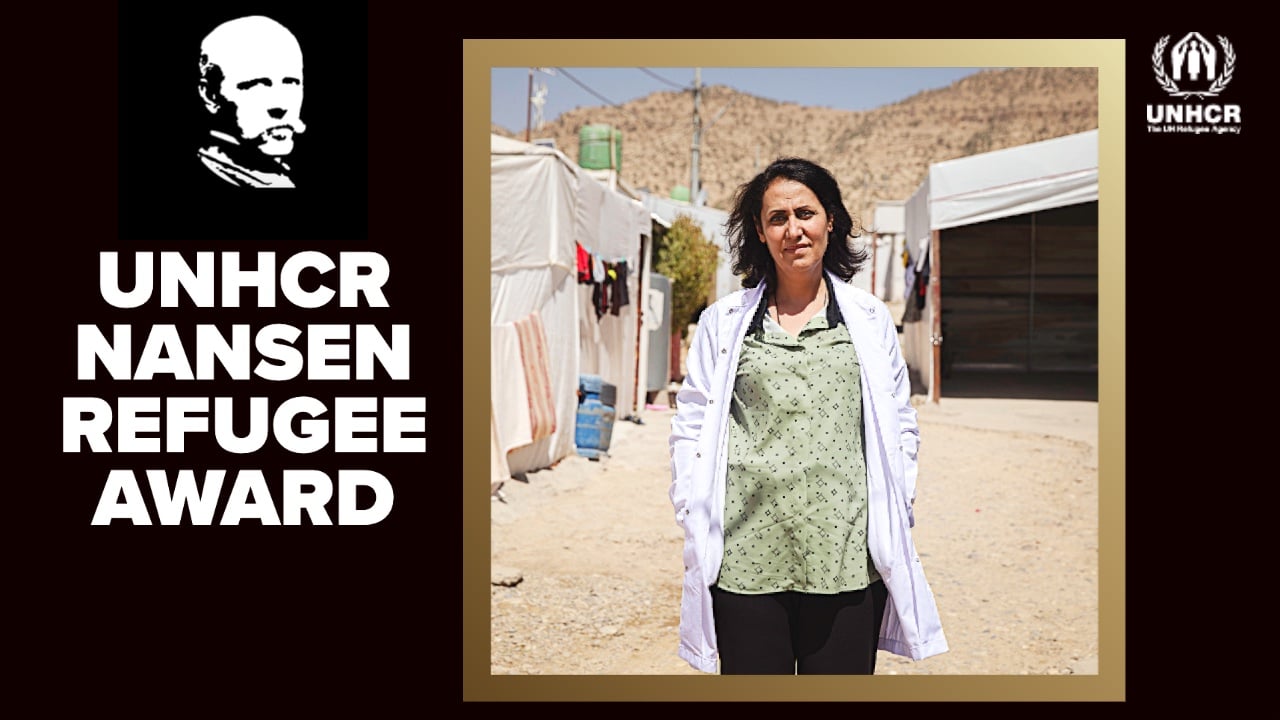UN Humanitarian Briefing on Iraq
UN Humanitarian Briefing on Iraq
Refugees stuck in no man's land
In no man's land on Jordan's border with Iraq, dozens of Iraqis are still stuck in the windswept border zone only metres from the Al Karama border bost, waiting to enter the refugee camp at Ruwaished. Some of these people have been there for a month.
On Wednesday, the Jordanian authorities permitted 14 Iraqis to leave no man's land and enter the Red Crescent's camp for third country nationals. These Iraqis were apparently allowed into Jordan because they carried valid UAE [United Arab Emirates] residence permits in their passports. The International Organization for Migration reports that a handful of Iraqis are regularly permitted to cross into Jordan as long as they carry travel documents and visas for onward movement.
Under our 15 April agreement with the Minister of Interior, all Iraqis should be permitted to cross into Jordan for temporary protection in the refugee camp at Ruwaished.
The current government policy is leaving some desperate Iraqis stuck in the no man's land. It is a basic principle of international law that refugees need not present travel documents or visas. Every individual has a right to seek temporary asylum - exactly the reason why we established a refugee camp at Ruwaished.
The High Commissioner for Refugees had called on all governments in the region to keep their borders open to Iraqi refugees seeking temporary protection.
Lack of a pervasive civil authority, unrest and looting are still prevalent in areas of Baghdad and other Iraqi cities, despite efforts by the Occupying Power to arrest the lawlessness. There are also disturbing reports that some Iraqi women fear that the liberties and rights guaranteed by the former regime may be under threat.
The apparent vacuum, continuing hostilities, and the fact that some groups may well find their human rights under threat are apparently creating at trickle of new asylum seekers. For these reasons, the right to asylum must be observed by all states in the region.
The no man's land encampment continues to accommodate some 1,000 refugees, mainly Iranian ethnic Kurds from Al Tash camp, and some 30 other Iranians for whom we are seeking their readmission to their countries of first asylum
Palestinians in Ruwaished camp
We understand that eight Palestinian refugees who arrived in recent weeks have opted to leave the refugee camp at Ruwaished and return to Iraq.
Two small groups left yesterday, with five persons - including one woman - leaving Wednesday morning using transport provided by the Jordanian authorities. Another group of three men left later in the day, also transported by government vehicles up to the Iraqi border post at Trebil.
While UNHCR was not involved in their decision to return to Iraq, it appears that these Palestinians felt that life in the refugee camp was not what they expected, and that they did not require the protection afforded them by the government of Jordan. One man indicated, however, that he may return to Jordan together with his family.
UNHCR is not facilitating the return of people to Iraq at this time due to the continued insecurity in the country.
Following the admission by Jordan of more than 40 persons, mostly Palestinians, more than 700 people are currently sheltered in the UNHCR/Jordanian Hashemite Charity Organisation (JHCO) refugee camp at Ruwaished. Among them are more than 100 Jordanians married to Palestinians.
Palestinians in Iraq
In Baghdad, UNHCR staff have spoken with representatives of the Palestinian Red Crescent (PRC) regarding reports of insecurity facing some Palestinians in the Iraqi capital. The PRC said that 250 Palestinian families had left their rented apartments and settled in a makeshift camp close to the PRC's hospital. Apparently these households were approached by their landlords seeking rental fees, payments that were formerly made on their behalf by the government. The PRC reported that conditions at the makeshift encampment where these people are sheltered are very poor.
Since UNHCR's Baghdad warehouse was looted in recent weeks, we are looking at the possibility of moving some relief aid from Jordan or other neighbouring countries into Iraq and providing supplies to the PRC so that it may assist these Palestinians until they can rent new accommodations.
As noted here Wednesday [yesterday], there are no reports to indicate that large numbers of Palestinians are headed towards Jordan. Indeed, in addition to the eight Palestinians who opted to return to Iraq from our camp at Ruwaished yesterday, Jordanian officials manning the Al Karama border post have reported that Palestinians are apparently returning to Iraq at a much greater scale than the numbers of people entering the country.
Iranian refugees on the move
We have received reports that more than 800 Iranians, apparently from among the more than 6,000 Iranian refugees settled in Iraq's Wasit and Misan governorates, may be seeking to repatriate to Iran. These people are reportedly still on the Iraqi side of the frontier, near Iran's Dehloran border post, Ilam Province.
A UNHCR team from our Kermanshah office expects to meet with these Iranan refugees tomorrow at the Dehloran crossing. If indeed they are seeking to return home, we will be discussing with the Iranian authorities how their entry formalities can be speedily arranged so that they may cross as soon as possible. It is so far not clear why this group opted to leave their settlements.
UNHCR last year repatriated more than 1,100 refugees from this area of eastern Iraq. They originally fled Iran during the first Gulf War.








